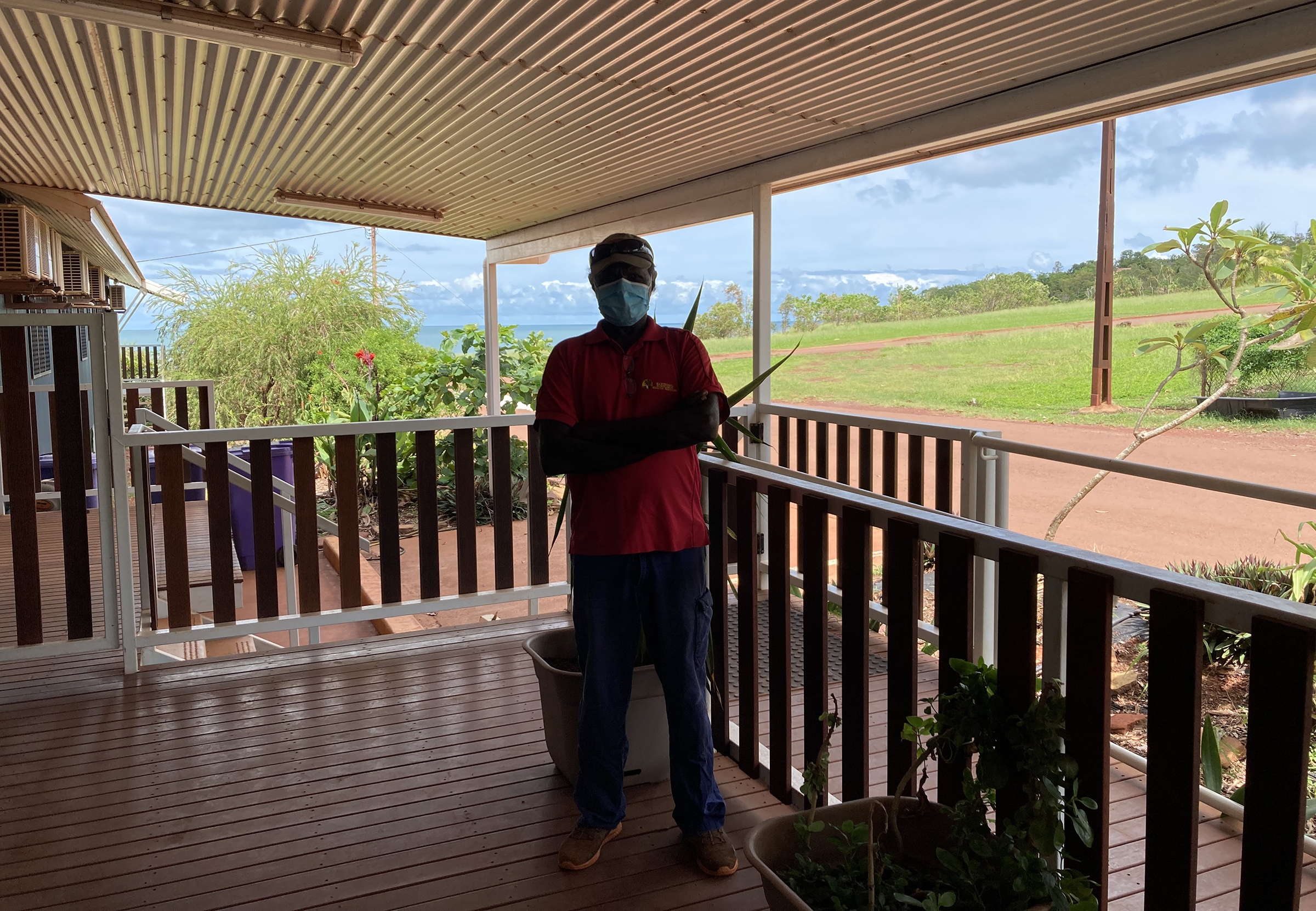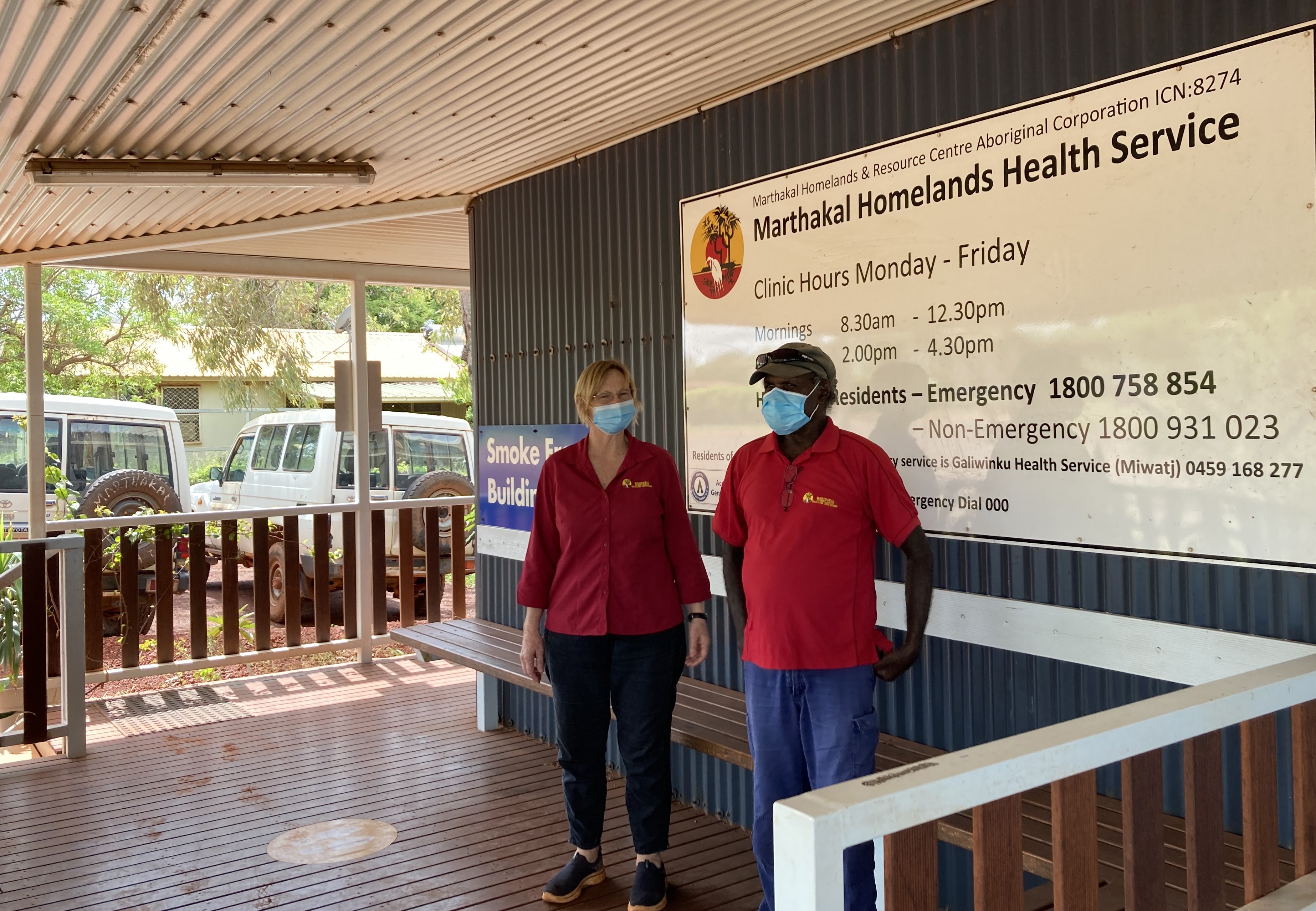This site may not work properly using older versions of Edge and Internet Explorer. You should upgrade your browser to the latest Chrome, Firefox, Edge, Safari, or any other modern browser of your choice. Click here for more information.
Your Stories
This is where we tell your stories, cover topical issues and promote meaningful initiatives.
Being an Aboriginal Health Practitioner during the pandemic
Geoffrey Ganambarr from the Marthakal Homelands Health Service has been an Aboriginal Health Practitioner for 11 years. His challenging role involves being the first point of contact and providing health care over distances and during the Wet, but he finds a way, even during the pandemic.

Geoffrey from the Marthakal Homelands Health Service.
From its base on Elcho Island in Galiwin’ku in the Northern Territory, the mobile Marthakal Homelands Health Service provides care to the Yolngu People over an area of 15,000 km².
Among the community, behind the wheel of a 4WD, or in a plane travelling to the distant corners of the Homelands, you are likely to find Geoffrey Ganambarr, who has been an Aboriginal Health Practitioner for over 11 years.
Geoffrey is multilingual in traditional Yolngu Matha languages and acts as a first point of contact for Yolngu People seeking health support.
“It was hard in the first place, but it’s easy now,” Geoffrey explains of his career so far. “A lot of experience now.
“I came here when I married my wife. She’s from here. I came from Milingimbi [Island]. I was here for long years when I was young.”
The work is demanding at the best of times, but the pandemic has increased the difficulty.
As we talk on the phone in January, Galiwin’ku has just gone into a seven-day lockdown due to COVID-19 cases in the region. Health services are temporarily limited to medications and emergency.
“We are locked down at the moment and will be opened next week,” Geoffrey continues. “People are frightened. We didn’t have this virus before.
“It’s not happened here before. It just comes and goes. People can’t go back to Darwin for a weekend.”
Fortunately, Geoffrey and the team did every-thing they could to limit the risk beforehand.
“We had some people come in from Darwin and they explained to the people about this COVID-19,” Geoffrey says, remembering back to a few weeks ago. “Then they understand, and they came into the clinic and asked for a vaccination.
“During COVID vaccinations I worked in the clinic, helping them last week. When the people come through, they see me first. I take temperatures and then they go off and see the nurse for a vaccination.”
This year’s wet season has added to the complexity: “Wet season, like biggest rain. We can’t go and fly to the Homelands, the mainland. We stay in the one place. We drive alright, here. Visit Homelands around here.”

Geoffrey with Health Manager at Marthakal, Jannie Kraayenhof
As Geoffrey points out, there are many benefits for nurses if they decide to work for the Marthakal Homelands Health Service. Together, Nurses and Aboriginal Health Practitioners can achieve great things.
“It’s a good opportunity for them to come here, and get more experience, get experience from us,” he says.
“When the visiting nurse can’t understand, we explain to them. We speak Yolngu Matha, and we explain to them.
“We follow a recall system. Then we know who the people are and take the nurse to those people.”
Health Manager at Marthakal, Jannie Kraayenhof, says that by employing Aboriginal Health Practitioners like Geoffrey, the service empowers nurses to do what they do best.
“Having a local person who is the first port of call – for me that is an important standard to set in all Aboriginal communities,” she says.
“They speak the language, it’s their culture, their people – if anyone’s going to understand each other, it’s going to be these mob.”
If you are interested in working for Marthakal Homelands Health Service as an Aboriginal Health Practitioner, a nurse, or a GP, you can email Jannie at health.manager@marthakal.org.
Have a story of your own to share? Email us at marketing@crana.org.au